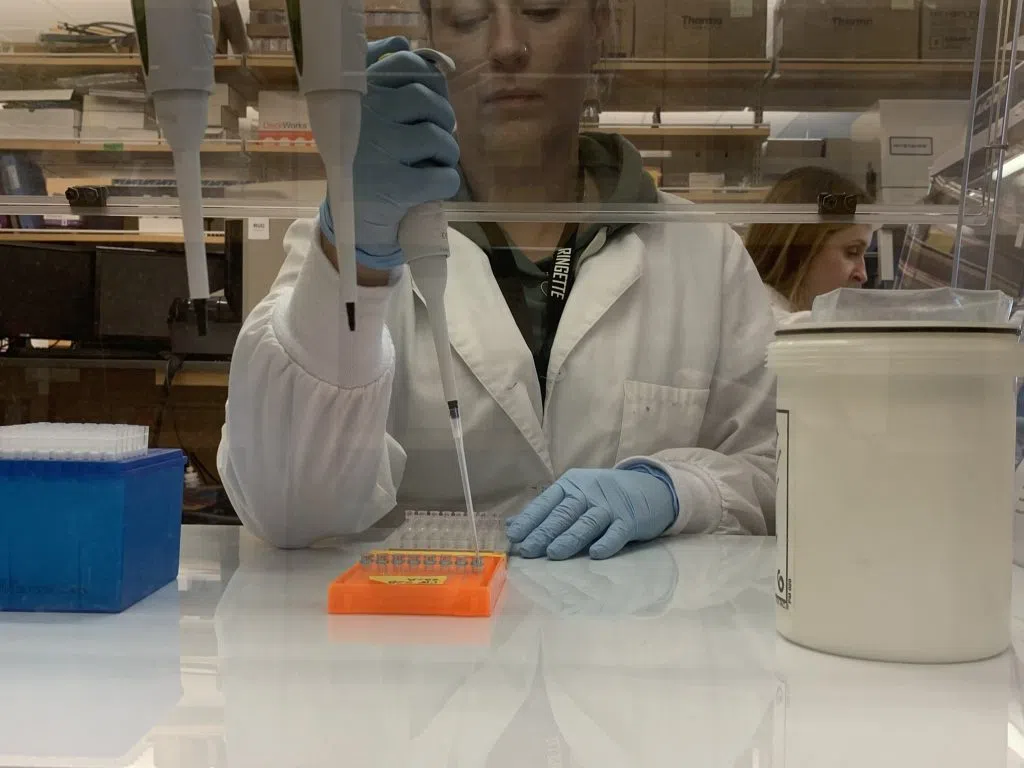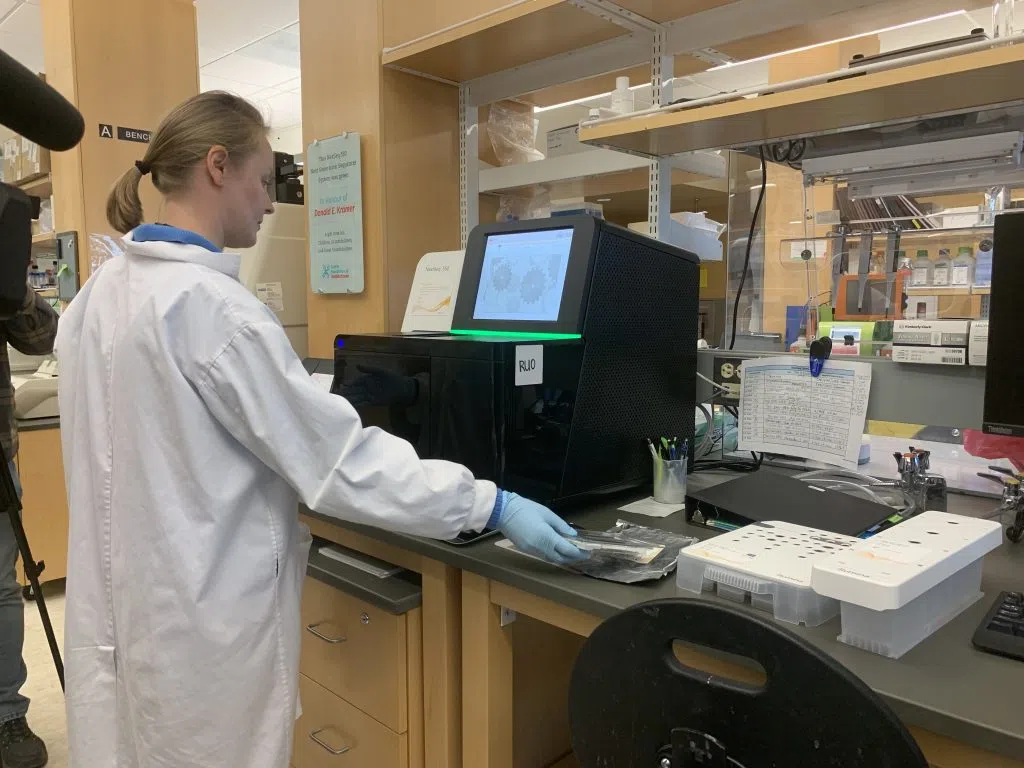A first-of-its-kind clinical trial for ovarian cancer patients has been launched at the Saskatoon Cancer Centre.
With help from a generous donation from the Kramer family, founders of Kramer Tractor, a Next Generation Sequencer was able to be purchased. The state-of-the-art sequencing technology tests cancerous ovarian tumours and can determine whether or not the patient would benefit from a new class of treatment drugs called PARP inhibitors.
Dr. Laura Hopkins, project lead and Professor of Oncology at the University of Saskatchewan, says PARP inhibitors are potentially toxic and can produce severe side effects. She says often the risks outweigh the benefits, hence why the clinical trial will be beneficial. These side effects include gastrointestinal issues, anemia, and loss of white blood cells.
“Tumour testing allows us to give ovarian cancer patients precision estimates about their chances of responding to treatment,” Hopkins adds. “Patients will receive customized information resources with their test results to facilitate a personalized and informed decision about whether a treatment is right for them.”
This technology allows oncologists to no longer have to make educated guesses on whether or not patients would benefit from PARP inhibitors. Hopkins says the trial has very little entry requirements, therefore providing a better glimpse of how ovarian cancer is affecting the general population as opposed to a specific demographic of people.
The $500,000 sequencer also is able to test patients with metastatic prostate cancer.
Currently the trial is accepting 100 Saskatchewan patients, but Hopkins looks to broadening that to include patients Canada-wide.


A medical lab technician completes library preparation, the second stage of the DNA sequencing procedure.

Dr. Laura Hopkins

A medical lab technician uses the sequencer to test approximately 1.2 billion DNA sequences in a span of 2-3 days















